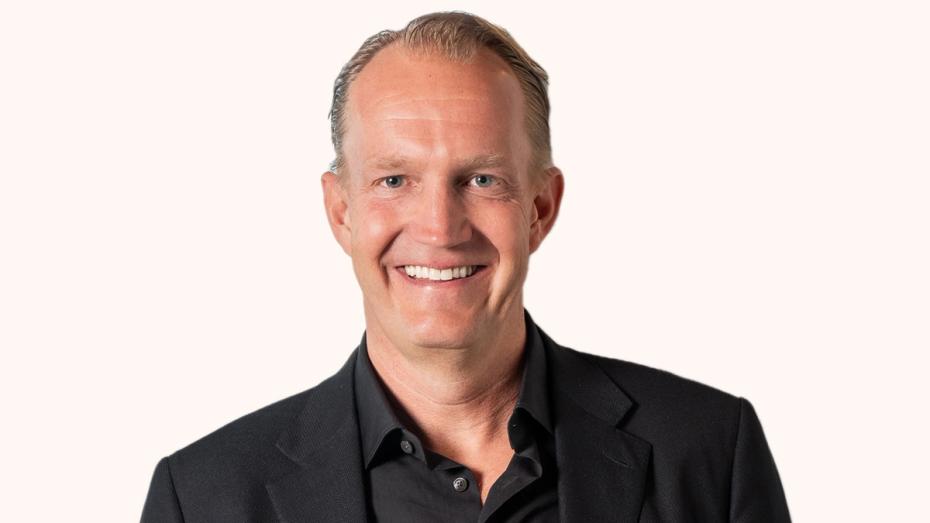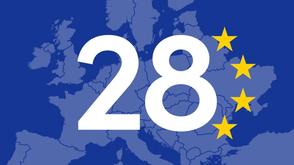

Our Mission to Help European Deep Tech Scale
EQT aims to help Europe’s deep-tech startups overcome regulatory, cultural and financial barriers to scale into globally competitive companies.
- Many European startup founders cite regulatory and financial fragmentation as key obstacles to scaling.
To some prominent investors, Europe’s technology strategy is a cautionary tale. “Just do the opposite of the EU,” says Marc Andreessen, co-founder of U.S. venture capital firm Andreessen Horowitz, who argued in a recent podcast that Europe favors regulation to the detriment of innovation. In the same conversation, David Sacks, a fellow U.S. investor and the White House’s AI and crypto czar, added that when European leaders talk about “AI leadership,” they often mean “defining the regulations.”
Their criticisms point to a real problem: Europe produces world-class research and engineering talent, yet struggles to turn innovation into global companies of the scale seen in the U.S. Deep-tech ventures need patient capital and a strong domestic customer base, which are both in short supply in Europe. Those gaps are what EQT, Europe’s largest private equity manager, is trying to close.
Founded in Stockholm in 1994, EQT built its reputation by taking family businesses and industrial groups public, then expanding into infrastructure, real estate and technology. Over three decades, it has backed hundreds of companies across sectors from healthcare to renewable energy, often helping them scale internationally. That same approach underpins its push into deep tech, where the challenge is often not innovation but scale. Andreessen isn’t wrong that regulation can create friction, but Europe’s barriers are also financial and cultural.
“Europe doesn’t have a startup problem, it has a scaleup problem,” says Victor Englesson, EQT’s head of early stage technology. “To support its many entrepreneurs, the EU must establish a region-wide framework that simplifies and harmonizes rules for companies operating across borders.”
Einride’s journey
Europe’s financial fragmentation holds back many promising startups, agrees Roozbeh Charli, CEO of Einride, a company developing autonomous trucks for freight that’s backed by EQT Ventures.
“The capital markets in Europe are still fragmented between the different countries,” he says. That breeds caution among European investors. “There’s this perception of lower risk appetite among European investors for big bets,” he says.
For Mike Butcher, a former editor at TechCrunch and founder of Pathfounders, a related concern is the lack of institutional money behind the continent’s venture capital. “In the U.S., you get vast pension funds and endowments that invest in venture capital… and a population that routinely trades in stocks and shares. Europeans don’t do that,” he says. European governments have not encouraged this wealth-creation structure, leaving smaller funds and shallower pools of capital. “Venture capital in the U.S. can raise billions and billions, far more than European venture funds,” he says.
Europe’s demand dilemma
Even well-funded European innovators, such as Einride, face a demand problem. “Heineken in Holland is not the same as Heineken in Austria,” says Charli, noting that selling across Europe means navigating 27 different markets with different rules, and that doing a commercial deal with one subdivision of a European company doesn’t necessarily open the door to a deal with the wider organization. In the U.S., one corporate deal can more easily lead to a national rollout.
Large European corporations spend less on innovation and acquire fewer early-stage businesses. McKinsey says that from 2015 to 2022, Europe’s largest companies spent roughly half as much on R&D as their U.S. counterparts as a share of revenue, and American firms also buy startups about four times more often than European ones, according to Mind the Bridge, a research group in San Francisco. “There’s very little, almost no culture in Europe among the corporate giants like SAP or France Telecom to buy tech companies,” says Butcher. That scarcity depresses valuations and pushes founders towards U.S. buyers.

Martin SFP Bryant, the editor of PreSeed Now, a publication that covers the UK’s most interesting pre-seed startups, adds that part of the problem is cultural. “In the U.S., the question is often ‘what could go right?’ In Europe, it’s more ‘what could go wrong?’” That conservatism sometimes clashes with the reality of building deep-tech startups.
The result of all that is a steady talent drain as Europe’s boldest founders head west in search of money and scale. The European Union has tried to address the problem through initiatives such as a new pan-European investment fund and proposals for a “28th regime”, a single corporate framework that would let startups operate across borders under one set of rules. Perhaps, then, Andreessen’s advice to “do the opposite of the EU” rings hollow. The problem isn’t intent, it’s execution.
EQT in Europe
EQT wants to show what better execution in Europe looks like. The firm’s CEO, Per Franzén, has urged European policymakers to make scaling technology companies “the rule, not the exception.” In an open letter in October, he called for reforms to unlock private capital, simplify cross-border rules and create a pan-European stock market. Without a unified financial system, he warned that Europe’s deep-tech ambitions will remain constrained.
EQT doesn’t just invest. It aims to help companies grow across borders. “They’re one of the few true global players,” says Charli. “Their presence in multiple markets means they can actually help you enter them.” The firm’s model also goes beyond writing checks. “[They can help us] not only as an investor but also help us from an operational perspective,” says Charli.
For Einride, a business which spans software, hardware and logistics infrastructure, that breadth of understanding is critical. “They understand companies that are combining software, infrastructure and hardware, which is very rare to find in the financial community.” EQT’s hands-on style also helps portfolio companies expand into new markets. “They’re more hands-on than traditional financial investors… and more experienced than just an early-stage venture partner,” Charli says.
Bryant says U.S. founders often embody a “frontier philosophy,” chasing scale at all costs. Europe, he says, by contrast, values balance and sustainability alongside growth. Andreessen and his U.S. investor friends may be right that regulation alone won’t win the AI race. But with investors like EQT pairing capital with expertise, Europe is perfectly capable of supporting its own innovators and nurturing its best ideas so they grow at home, rather than abroad.
ThinQ by EQT: A publication where private markets meet open minds. Join the conversation – [email protected]
On the topic ofEurope and Technology
Exclusive News and Insights Every Week
Sign up to subscribe to the EQT newsletter.






